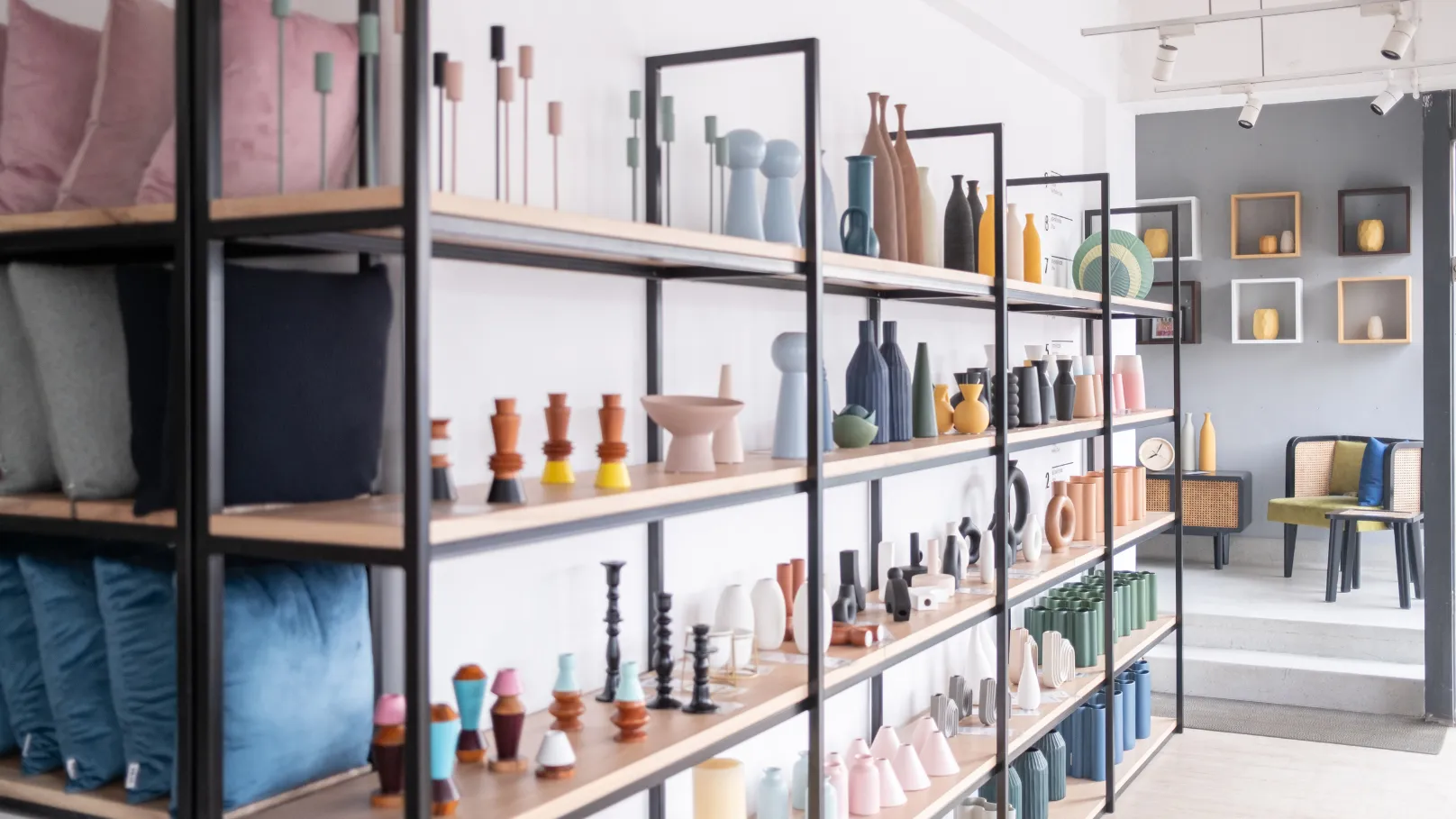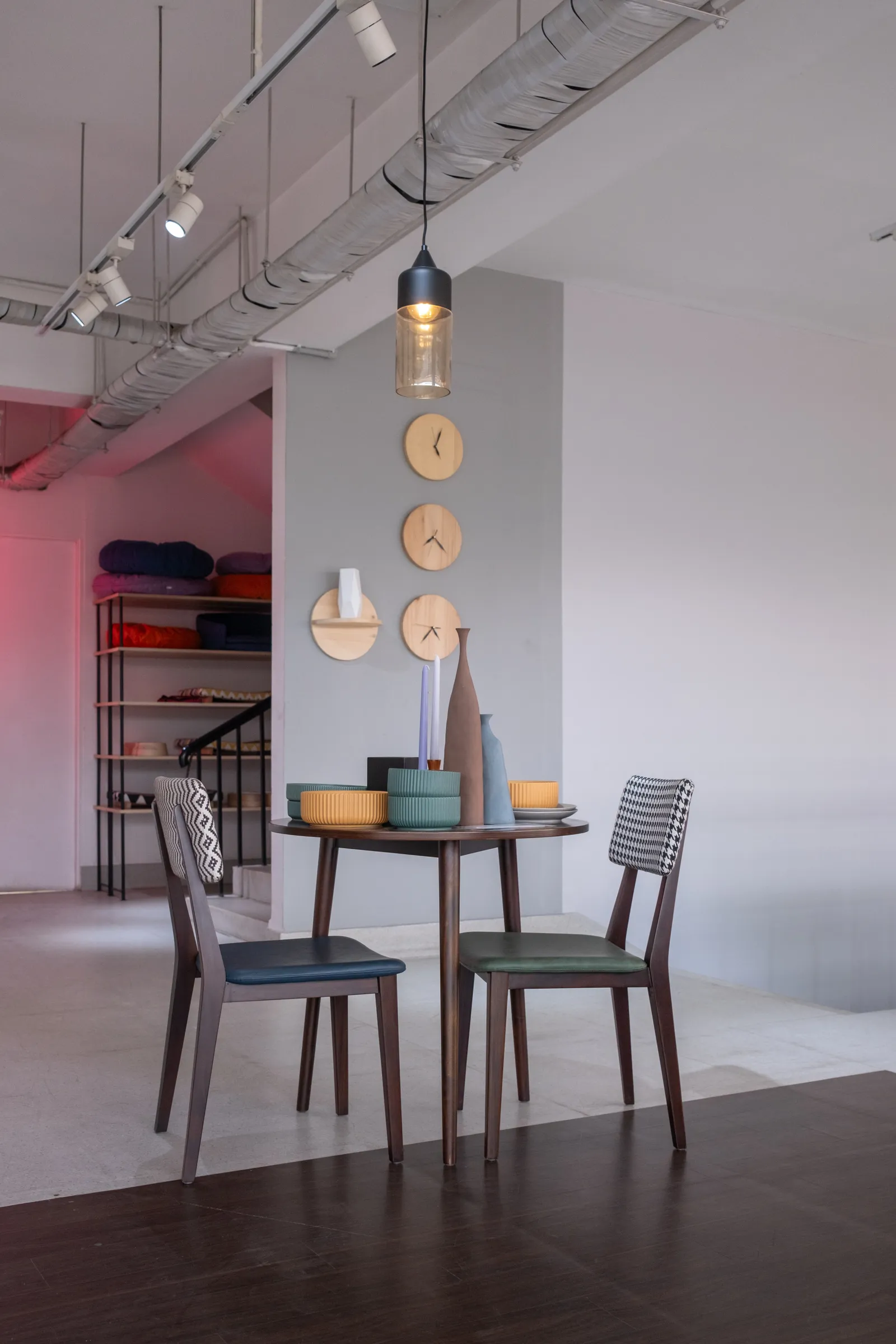Reclaimed wood was a design choice for many of the exhibitors this year at the International Contemporary Furniture Fair in New York City at the Jacob Javits Convention Center May 19-21. The event hosted more than 400 exhibitors and 12,000 attendees from 88 countries, featuring curated collections tailored for residential, contract, and hospitality environments.
From LED lighting to kitchen tables, this year’s exhibitors brought life into discarded wood, chose eco-friendly options, and above all, sustainability was key.

Rayana Hossain is a third generation entrepreneur who was born and raised in Dhaka. As a trained architect, she didn’t want to just settle for inheriting her already thriving family business—the Dekko ISHO Group, a Bangladeshi fashion and lifestyle conglomerate. Upon completing her masters from the Harvard University Graduate School of Design in 2017, she returned to home turf and noticed a visible gap in the furniture space where people had access to locally crafted goods matching international standards. “ISHO was launched in 2019 as an e-commerce platform. We then launched our first store six months later in Dhaka, which is still our flagship,” Hossain tells AD.

Upon entering their store in Baridhara—the brand’s first physical showroom launched in 2019—you realise who ISHO’s takers are: a discerning buyer with an eye for minimalist and impactful design. The multi-storey outpost—one of the four in Dhaka—caters to a specific room on each floor. There’s an emphasis on form and colour, with collections dedicated to a single material inspired by the places Hossain has travelled to. For instance, the Noblitt range explores the mid-century use of metal in furniture by American firms where this concept was first conceived. The Ratargul collection draws from the swamp forests of Sylhet, where the fibrous climbing palms producing rattan—the primary material used in the collection—are found. For Pompeii, the designs are an obvious homage to the historical ruins found in the Italian city. ISHO, therefore, is also for the modern globetrotter who doesn’t settle for less.
“I come from a family of entrepreneurs and business owners which while I was growing up allowed me to understand the various nuances of running a business. It is this exposure that has allowed me to take on the challenges and responsibilities of running a business today,” the entrepreneur says. Hossain’s commitment to scaling the brand’s reach is evident in its dizzying growth through the COVID-19 pandemic, when it witnessed a near 450 percent jump in its sales, something Hossain hadn’t anticipated would happen during such a short span of time. “While the new-age customers’ tastes and preferences are evolving, there are not many options in the market to fulfill that demand. I aimed to offer customers high-quality products at affordable prices and help them transition into modern and global designs,” Hossain says. “A significant amount of time was spent researching the market, individual tastes and preferences, and concepts that would work locally before we launched to ensure that our products would resonate with audiences.”
Despite their global ambitions, ISHO, at heart, is a homegrown Bangladeshi dream that started out with a collection celebrating Sonargaon, a culturally significant city in Bangladesh. This port town served as the centre for muslin trade in the Indian subcontinent, and boasts a strong built heritage that inspired her mahogany wood range. “I was determined to manufacture all our products locally and ensure we stuck to our belief in reinventing the use of spaces and creating unforgettable experiences for people in their daily lives. ISHO is a data driven furniture brand that creates micro contextual designs with a focus on functionality, adhering to the needs of people in their day to day lives,” says Hossain.
The brand brings with it a promise to innovate through not just design, but also technology, as Hossain’s plans of further expansion are driven by a digital-first approach, since ISHO started as an e-commerce venture. Bangladesh is among the largest manufacturing hubs of the global south, a fact Hossain wishes to utilise and subvert in order to empower local crafts and craftspeople, whom she collaborates and converses with on the daily. “We believe all of our designs are signature as each collection is inspired by different places because of either the history, design, culture or material. Every collection at ISHO has a design story behind it,” Hossain signs off.


sdfsdfsdf